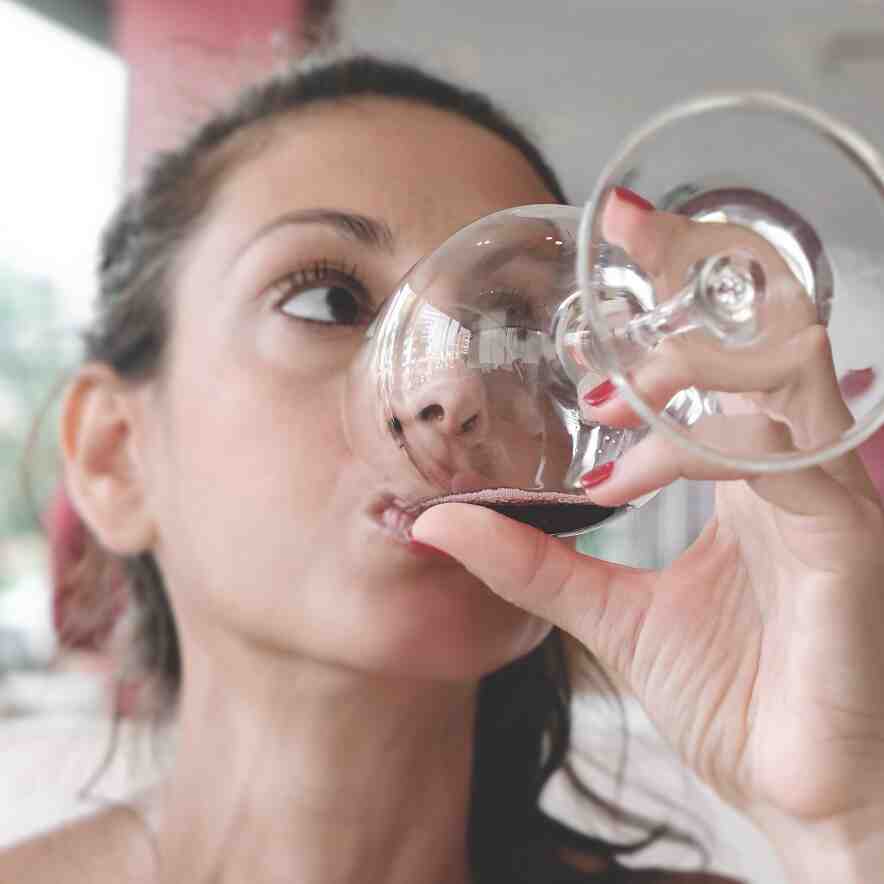Wine’s Role in Managing Stress and Anxiety
In today’s fast-paced world, stress and anxiety have become common challenges that many people face on a daily basis. Whether it’s work pressure, personal responsibilities, or global concerns, stress can take a significant toll on both our mental and physical health. As a result, individuals often seek various ways to unwind and relax, and for many, a glass of wine is part of that routine. But can wine really help manage stress and anxiety, or is it just a temporary escape? In this article, we’ll explore the potential role of wine in managing stress and anxiety, looking at both the benefits and the potential downsides.
The Science of Stress and Anxiety
Before diving into the role of wine, it’s helpful to understand what stress and anxiety are, and how they impact our bodies.
- Stress is a natural physiological and psychological response to challenges or demands. When we experience stress, the body’s “fight or flight” response is triggered, releasing hormones like adrenaline and cortisol. While short bursts of stress can be motivating, chronic stress can lead to long-term health problems, including heart disease, high blood pressure, digestive issues, and mental health disorders.
- Anxiety, on the other hand, is a persistent feeling of worry or fear, often without a specific cause. It can manifest as physical symptoms like a racing heart, shallow breathing, or sweating. Chronic anxiety can contribute to difficulties in concentration, sleep disturbances, and may increase the risk of depression or other mood disorders.
Finding ways to reduce stress and anxiety is crucial for maintaining overall well-being. This is where wine, particularly red wine, comes into the picture.
Wine and Relaxation: How It Works
A glass of wine can be a go-to option for those looking to unwind after a long day. But what is it about wine that might help us relax?
1. Alcohol’s Sedative Effects
Wine contains alcohol, and alcohol, in moderation, has sedative properties that can promote relaxation. When consumed, alcohol has a calming effect on the central nervous system, which can reduce feelings of tension and anxiety. It can also help lower inhibitions, making people feel more at ease in social settings.
- Calming the Nervous System: Alcohol acts as a central nervous system depressant, meaning it slows down brain activity and reduces feelings of nervousness or agitation. This calming effect can be particularly helpful for those who experience mild anxiety or stress.
- Temporary Mood Enhancement: For some people, the effects of alcohol can lead to temporary mood enhancement, providing a sense of euphoria or contentment. This can offer a momentary escape from stress or anxiety, helping individuals feel more relaxed in the short term.
2. Socializing and Stress Relief
One of the reasons wine may be associated with stress relief is its common role in social situations. Sharing a glass of wine with friends, family, or colleagues can have significant psychological benefits.
- Social Connection: Socializing and connecting with others are known to reduce stress and improve mental health. Engaging in positive interactions and building strong relationships can help release oxytocin, the hormone associated with bonding and relaxation. Sharing a glass of wine in a relaxed, enjoyable environment can facilitate these connections, providing a sense of comfort and emotional support.
- Mindful Drinking: In social situations, drinking wine can also promote mindfulness. By taking the time to sip, savor, and enjoy a glass of wine, individuals may experience a moment of relaxation, helping them temporarily disconnect from stress.
3. Red Wine and Its Potential Health Benefits
While all wines contain alcohol, red wine is particularly noted for its potential health benefits, which may extend to managing stress and anxiety. Red wine is rich in antioxidants, particularly resveratrol, which has been linked to various health benefits, including brain health and stress reduction.
- Resveratrol and Stress: Some studies suggest that resveratrol, a compound found in red wine, may help reduce the effects of stress on the brain by regulating the corticosterone hormone, which plays a key role in the body’s stress response. Resveratrol may help reduce anxiety and improve mood by modulating the brain’s response to stress.
- Flavonoids and Anxiety: In addition to resveratrol, red wine contains other polyphenols, such as flavonoids, which have been shown to have antioxidant and anti-inflammatory properties. These compounds may help protect the brain from the negative effects of stress, improving overall mental health and potentially reducing symptoms of anxiety.
However, it’s important to note that these potential benefits of red wine are best experienced in moderation, and the research on how wine specifically influences stress and anxiety is still evolving.
Moderation Is Key: The Downsides of Drinking Wine for Stress Relief
While wine can offer temporary relief from stress and anxiety, it’s essential to remember that alcohol should be consumed in moderation, and excessive consumption can lead to a range of negative consequences.
1. Alcohol Dependency and Escapism
Drinking wine as a way to cope with stress or anxiety may lead to emotional drinking, where individuals turn to alcohol as a crutch rather than addressing the root causes of their stress. Over time, this can lead to alcohol dependency or addiction, making it more difficult to manage stress in healthy ways.
- Escapism: Using alcohol as a way to escape from stress or anxiety can prevent individuals from developing effective coping strategies. This can lead to a cycle where people rely on alcohol to manage emotions, which may exacerbate the underlying issues, rather than addressing them directly.
2. Impact on Mental Health and Sleep
While alcohol might help people relax initially, it can also disrupt sleep patterns. Many people find that alcohol makes them fall asleep faster, but it can interfere with the quality of sleep, leading to more fragmented or restless sleep throughout the night.
- Sleep Disruption: Poor sleep can increase stress and anxiety levels, creating a vicious cycle. Without adequate rest, the brain becomes less capable of handling stress and may be more susceptible to anxiety the following day.
- Mood Disturbances: Alcohol consumption can also affect the balance of neurotransmitters in the brain, potentially leading to mood swings, depression, or increased anxiety once the immediate effects wear off.
3. Increased Risk of Health Issues
Drinking too much wine, particularly over the long term, can have a range of negative effects on physical health, including liver damage, weight gain, high blood pressure, and an increased risk of certain cancers. Chronic alcohol use can also negatively affect mental health, contributing to depression, anxiety disorders, and more severe forms of stress.
Best Practices: How to Enjoy Wine Responsibly for Stress Relief
If you choose to drink wine as a way to manage stress and anxiety, moderation is key. Here are a few tips for enjoying wine responsibly while minimizing potential negative effects:
- Stick to the Recommended Limit: For most people, moderate drinking means one glass (5 ounces) of wine per day for women and up to two glasses for men. Staying within these guidelines helps you avoid the harmful effects of alcohol while still enjoying its relaxing benefits.
- Avoid Using Wine as a Coping Mechanism: While a glass of wine can be a pleasant way to relax, it’s essential to address the underlying causes of stress or anxiety. If you find that you’re using wine as a way to cope with difficult emotions, consider seeking healthier coping mechanisms, such as exercise, meditation, or speaking with a mental health professional.
- Pair Wine with Healthy Activities: If you’re looking for ways to unwind, consider pairing a glass of wine with calming activities, such as reading, taking a bath, or engaging in deep breathing exercises. This can enhance the stress-relieving effects of wine without relying solely on alcohol to cope with emotions.
- Stay Mindful of Your Overall Health: It’s important to maintain a balanced lifestyle that includes proper sleep, exercise, and nutrition. While wine may help manage stress in the short term, long-term mental and physical well-being depend on a holistic approach to self-care.
Conclusion: A Temporary Stress Reliever, Not a Long-Term Solution
Wine, particularly red wine, can play a role in managing stress and anxiety when consumed in moderation. Its relaxing effects, combined with the potential benefits of antioxidants like resveratrol, may help promote relaxation and reduce stress levels. However, it’s important to approach wine consumption with caution, as excessive drinking can lead to dependency, sleep disturbances, and other negative health outcomes.
If you’re using wine to cope with stress, it’s essential to find a balance and explore other stress-relief strategies to ensure that you’re taking care of both your physical and mental well-being. A glass of wine might offer short-term relaxation, but long-term stress management requires healthy habits, mindful practices, and, when needed, professional support.









